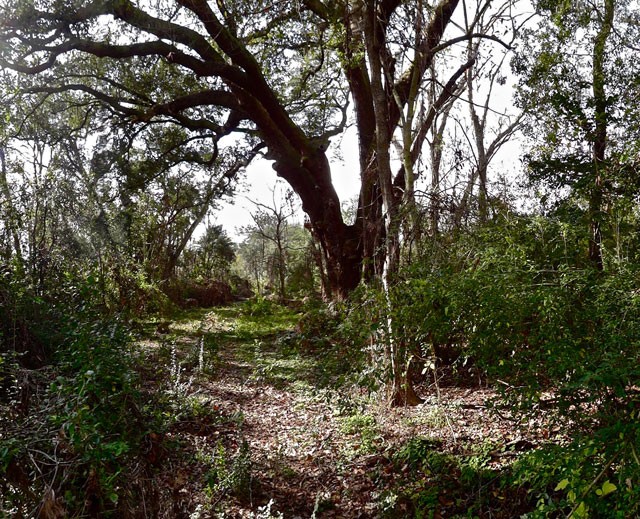
Steve McQueen, Lynching Tree, 2013, courtesy Schaulager
Steve McQueen’s photo Lynching Tree is being exhibited in the UK for the first time in Tate Britain’s new Fighting History show. Found in Louisiana while scouting locations for 12 Years a Slave (and ultimately featured in the film), the tree is surrounded by graves of those lynched there. In 2013, McQueen said his film was about “projecting the past into the present. So we were very fortunate to use that tree when we were filming those two guys who were being lynched. I mean, yes, we were dancing with ghosts. But we were asking for permission.”
- Two visionaries passed away this week: Jazz composer and alto saxophonist Ornette Coleman, whose early album The Shape of Jazz to Come proved prophetic, died at 85. “It’s hard to think of any other musician whose sonic convictions have been so personally liberating for themselves and so determined to liberate others,” wrote musician/writer Greg Tate of Coleman. “It’s for this reason that we have no choice but to classify Coleman as one of the great American inventors.” Self-taught artist Nek Chand, whose secret found-object sculpture park in Chandigarh, India, has become a beloved national treasure, passed away at age 90. Initially a roads inspector in the Le Corbusier–designed north Indian city, Chand began secretly making found-object sculptures in a secluded clearing in 1952. Officially sanctioned in 1976, the Rock Garden of Chandigarh includes more than 2,000 statues on 25 acres today.
- In a new New York Times Op-Doc, CITIZENFOUR filmmaker Laura Poitras captures the creation of Ai Weiwei and Jacob Appelbaum’s Panda to Panda, a series of plush bears stuffed with shredded NSA documents. Writes Poitras:
The project’s title, “Panda to Panda,” is the synthesis of two terms created by dissident cultures. The slang term for the secret police in China is “panda,” which is a censorship-evading Mandarin homonym: “national security” sounds like “national treasure,” a.k.a. the panda. “Panda to Panda” also refers to peer-to-peer communication (P2P), a method of decentralized networking and a philosophy of egalitarian human interaction on the Internet.
- In a major shift, the Ford Foundation has announced it’ll be focusing its philanthropy entirely on battling social inequality—“looking not just at wealth, race, ethnicity, and gender but also access to technology and the arts.” Ford is the nation’s second biggest philanthropic organization, controlling $12.1 billion in assets.
- How come collectors who donate art to American museums can get tax breaks but artists who do the same can’t? If passed, Sen. Patrick Leahy’s Artist-Museum Partnership Act would allow makers to write off the fair market value of donations, not just the cost of materials.
Follow Art News From Elsewhere on the Walker Art Center homepage or via @walkermag, the Walker’s editorial-focused Twitter feed.



